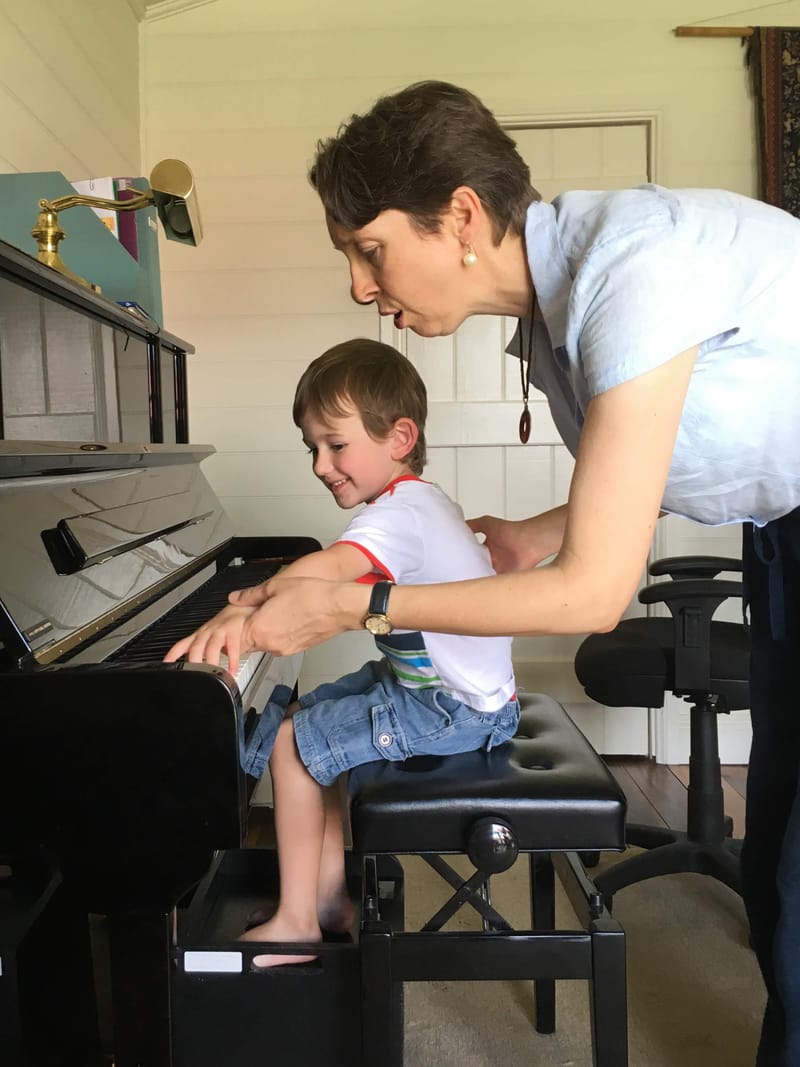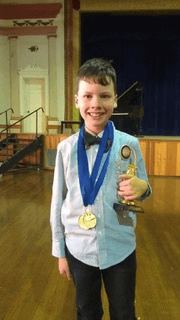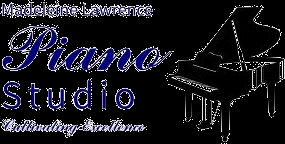Teaching

Lessons for children
I teach children from age 4. Before commencing lessons, I assess each child for readiness. This includes an assessment of their fine motor skills, patterning, concentration and aural skills. This is done through games at the piano, your child will not be under any pressure.
Starting lessons when your child is physically and mentally prepared ensures you do not waste your money and your child does not become discouraged.
On commencement of lessons I design a personalised program for each child based on their abilities and any special needs they may have. I am experienced working with neuro-diverse children and children with physical and emotional challenges.
My aim is for your child to really enjoy their lessons and practice and achieve to the best of their ability.
If you would like a no obligation free trial lesson, please drop me a line via the contacts page and tell me a little about your child as well.
Lessons for adults
Did you learn the piano as a child and now regret you gave it up? Or maybe you have always wanted to play the piano but have never had lessons. I welcome adult students of all ages, it’s never too late to start!
My oldest beginner student was 64 when she commenced lessons and my oldest student returning to piano lessons was 70. Both went on to play at a high level.
I use resources aimed at mature learners and aim to support you in developing strong reading skills and fluency in your playing.
If you would like a no obligation free trial lesson, please drop me a line via the contacts page and tell me a little about yourself as well.
I look forward to working with you!
- Lesson terms are nine weeks long
- Term fees are competitively priced.
- From time to time workshops and lessons before exams maybe offered at no extra charge.
Daily practice is expected of all students in my studio. In the same way that you wouldn’t employ a gardener to plant seedlings every week and then fail to water them, it makes no sense to attend music lessons and not ensure seeds of learning germinate and blossom through daily practice.
ETIQUETTE
- Please give plenty of notice if you/child will be absent from lessons.
- Please ensure you/child come to every lesson (Clean short fingernails).
- No food is to be brought into the studio. A water bottle in hot weather is encouraged.
- For after school lessons, please ensure that you/child has been to the toilet, had a snack and washed hands before the lesson.
- Please make sure you/child's notebook and all music books are brought to each lesson.
- Phones are to be switched off in the studio.
- Please remind children not to touch their eyes, mouth or nose during lessons and make sure they have a handkerchief.
- If a student has had a stomach bug, they are not to attend lessons for a MINIMUM OF 48 HOURS from cessation of symptoms. This is a courtesy to the teacher and other students using the piano.
PRACTICE
- Daily practice is strongly encouraged.
- For best results, resist over-scheduling your child.
- The best way to ensure practice happens is to schedule it for the same time each day. Where the child’s schedule varies too much for this, a timetable showing where practice happens each day is a good option.
- For the vast majority of primary school children, morning is the best time to practise as they are fresher then. It also means practice is not forgotten on busy afternoons.
- I have books that you are able to borrow on making practice a positive experience and also on practice technique for advanced students.
- For many children keeping a practice chart is a useful ‘awareness’ tool.
- I do not recommend rewarding children for practising! This gives the child the impression that practice is something to be endured, when in fact it is a huge privilege to learn to play a musical instrument. The ‘reward’ for practice is the joy that comes from mastery and the pleasure of making beautiful music.




